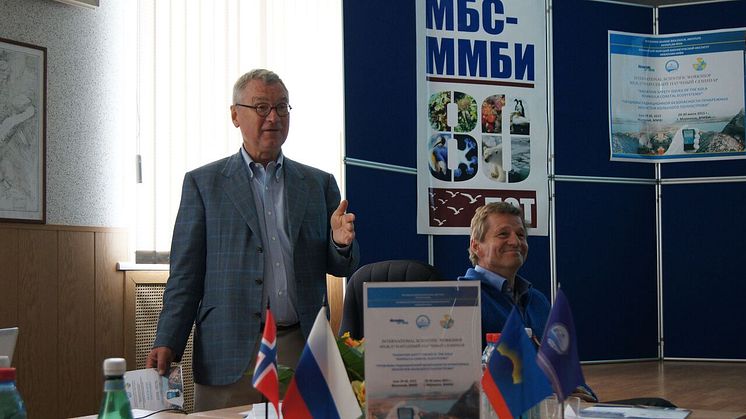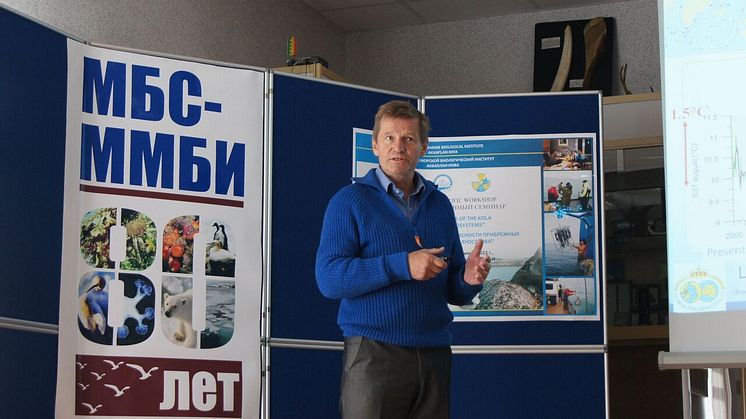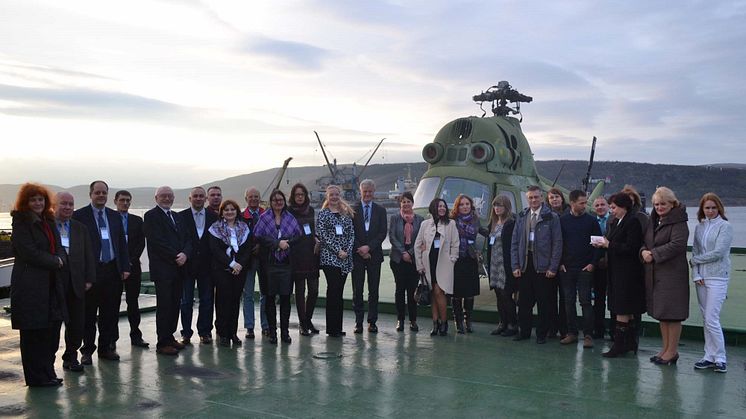
Nyhet -
Akvaplan-niva continues the good relations to Russia
The Norwegian research institute Akvaplan-niva has for 30 years collaborated with Russian scientists, business representatives and government institutions. Due to this, the institute is recognised as an important partner in environmental projects. Also, in 2006 Akvaplan-niva established an office in Russia, Akvaplan-niva Barents. Recently the results from a study in Andreeva Bay on the Kola Peninsula was presented during a workshop in Murmansk. The project was undertaken in collaboration with Murmansk Marine Biological Institute.
In a period where the relations between Russia and the neighbouring countries in the west is somewhat cool and collaborative projects are reduced, Akvaplan-niva sees it as important to continue the good spirit of cooperation that has been built over the years. This is taking place through joint research endeavours.
In June, Akvaplan-niva’s Director Salve Dahle and scientists Rune Rautio and Alexei Bambulyak, participated in a workshop in Murmansk. The title of the workshop was «Radiation safety of the Kola peninsula coastal ecosystems», and the event was arranged to discuss the results from a recent study of radioactive waste on the Kola Peninsula. The study has been conducted by Murmansk Marine Biological Institute (MMBI) in collaboration with Akvaplan-niva MMBI, headed by Academician Gennady Matishov, was also the organizer of the workshop.
Andreeva Bay is well known as one of the world’s largest storage facilities of highly radioactive spent nuclear fuel (SNF) from the Cold War and onwards. For a long time there has been international concern that some of this waste would leak out into the bay and further into the connected Zapadnaya Litsa fjord and eventually contaminating coastal areas of the Eastern Barents Sea.
The project has been financed by the Norwegian Radiation Protection Authority (NRPA) under the Action Plan for Nuclear Safety and Environment in Northwest Russia, also called the Nuclear Action Plan. An initial pre-project was financed by the Norwegian Barents Secretariat.
The Norwegian Radiation Protection Authority has for many years been having nuclear monitoring of Andreeva Bay as a priority. Inger Margrethe Eikelmann, head of the High North Division at NRPA, participated at the workshop in Murmansk. She presented the results from a field study to the sunken submarine K-159 and the monitoring collaboration work between Norway and Russia.
The results from the joint project by MMBI and Akvaplan-niva are both interesting and positive. Not surprisingly, it was measured leakages of Cesium-137 from the storage facility into the Andreeva Bay. However, there were very limited leakages further into the fjord, and no measured leakages into the Southern Barents Sea. Thus, there should be no reason to concern for the coastal fisheries or the Barents Sea fish stocks. These are the most important findings at the present stage, but data needs to be more thoroughly analysed, and there is also a need for further data collection.
The workshop attracted many interested parties, both from the regional authorities and other stakeholders. The media showed great interest in the event, and it was covered by several TV stations as well as by other media.
See link to interview with the director of Akvaplan-niva Salve Dahle and the director for MMBI Academican Gennady Matishov (in Russian) as well as link to a previous news posting from NRPA.

